News
Spectacular Strolls Among Japan’s Autumn Foliage Updated in December 2020
Japanese travel magazine Jalan asked its readers which autumnal spots they loved best. An overwhelming 71.0% said they liked places where they could walk and enjoy the scenery, well ahead of the 43.1% who said they preferred to view the autumn leaves while at an onsen (hot spring).
The magazine asked 1,000 people from their twenties to their fifties to choose three places they would like to visit to see superb autumn views, including a pleasant walk or some kind of outdoor leisure activity. The number one choice was Zaō Ropeway in Yamagata Prefecture where visitors can admire the foliage from above. Here are the top 10 spots that readers chose.
1. Zaō Ropeway (Yamagata)
Riding on a gondola here provides a unique aerial view of a spectacular autumnal 360-degree panorama. The ropeway takes visitors from Zaō-Sanroku Station, based at 855 meters at the foot of Mount Zaō, up to the summit station of Jizō-Sanchō, at 1,661 meters. The different altitudes highlight the various stages in the changing colors of the foliage.
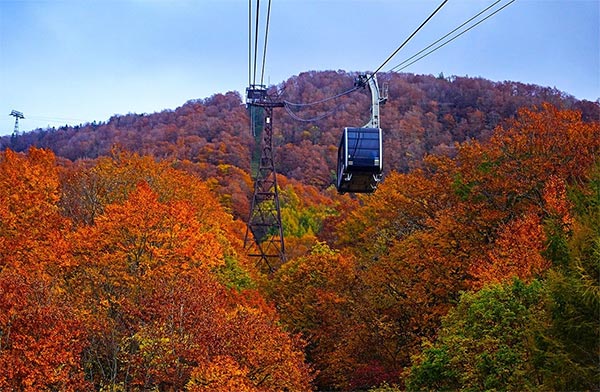
2. Kajikabashi at Ikaho Onsen (Gunma)
The red-arched Kajikabashi bridge beyond Ikaho Shrine creates a stunning scene along with the crimson leaves. There will be night-time illuminations from October 27 to November 15, 2020.
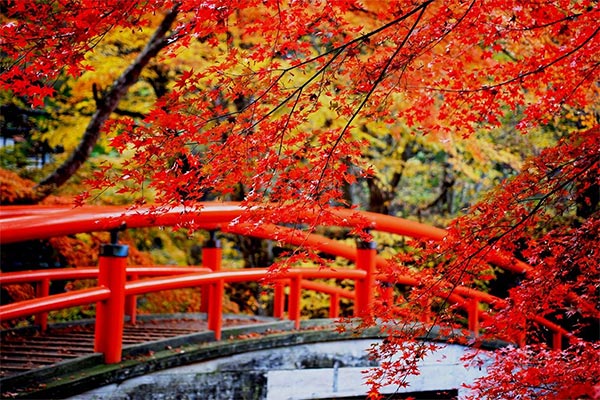
3. Chūsonji (Iwate)
This is a Tendai sect Buddhist temple that houses more than 3,000 national treasures and important cultural properties. A stroll within its wide precincts offers beautiful views of red foliage alongside the many historic temple buildings.
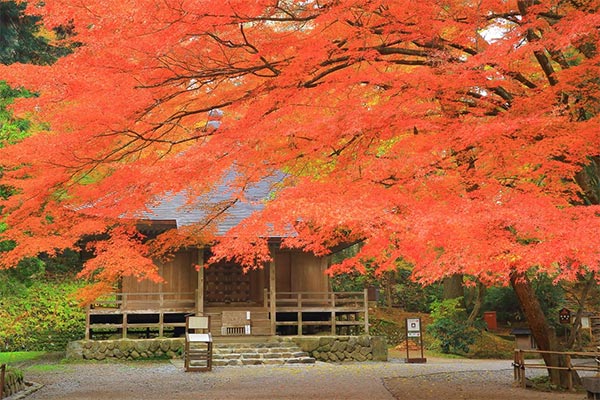
4. Katsurabashi at Shuzenji Onsen (Shizuoka)
Shuzenji Onsen is renowned for being the oldest hot spring resort on the Izu peninsula. The vermillion balustrade of Katsurabashi bridge among the autumn leaves creates a romantic atmosphere.
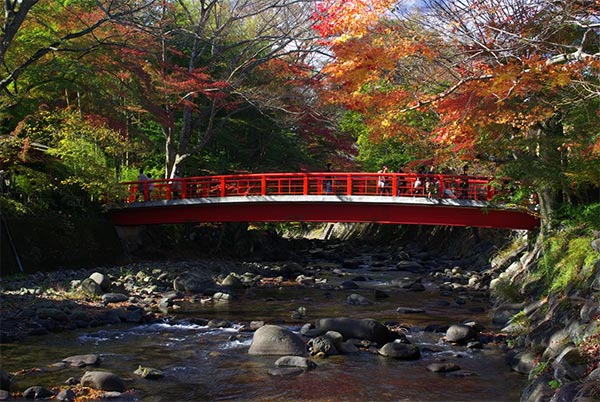
5. Arashiyama Yakatabune Cruise (Kyoto)
Visitors can step back in time, imagining themselves to be Heian period (794–1185) nobles as they admire the autumn leaves from a yakatabune (traditional wooden boat).
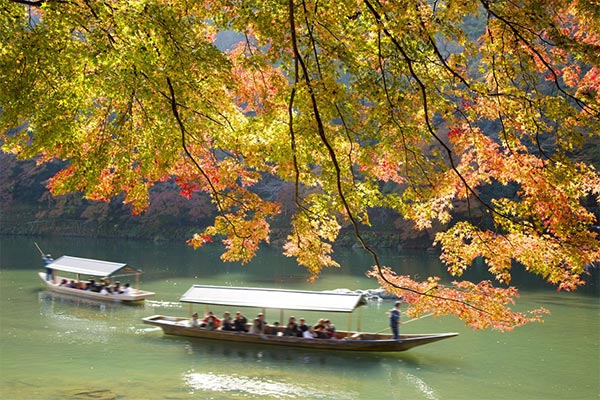
6. Shirogane Falls at Shirogane Park (Yamagata)
This area is known for the Ginzan Onsen, or silver mine hot springs, named because the Nobesawa Ginzan Silver Mine, which prospered in the Edo Period (1603–1868), was located here. The walk in the natural park, which leads from the hot spring town to the mine ruins, goes alongside a mountain stream with waterfalls and through a broadleaf forest.
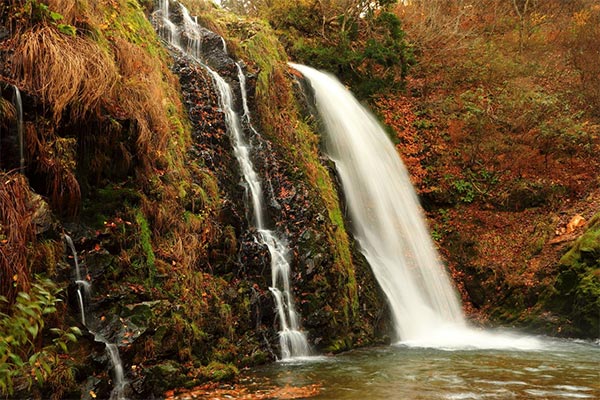
7. Nara Park (Nara)
This 660-hectare park is adjacent to a number of World Heritage temples and shrines, including Tōdaiji, Kōfukuji, and Kasuga Shrine. Visitors can relax and enjoy the harmony of history and natural beauty. The park is also known for its adorable deer.
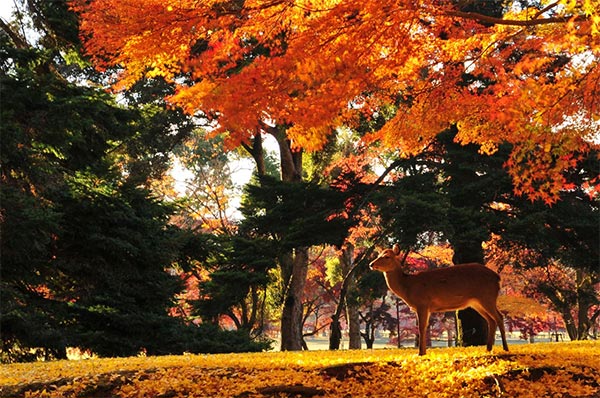
8. Suzaku-no-niwa Garden (Kyoto)
The pond in this garden is adorned by approximately 100 magnificent Japanese maples, and the reflection of their crimson leaves in the water is particularly impressive. The amazingly clear view is created using a unique technique of covering black granite with just one centimeter of water.
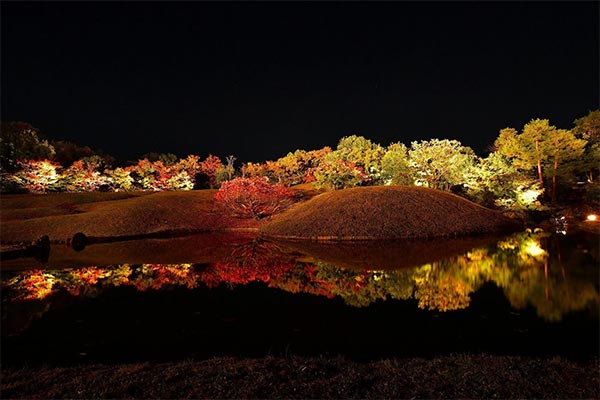
9. Nozaru Nasu (Tochigi)
This aerial park, the largest in Japan, uses the forest and terrain to the best advantage and the spectacular views foster a sense of adventure.
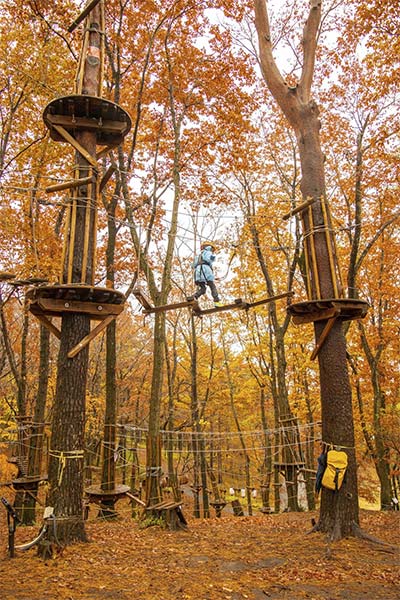
10. Taishakukyō (Hiroshima)
This gorge, which runs for 18 kilometers through the central area of the Chūgoku Mountains, is the main scenic spot in Hiba-Dōgo-Taishaku Quasi-National Park and is also designated as a national place of scenic beauty. Visitors can enjoy the autumn foliage on both cliff banks from a pleasure boat.
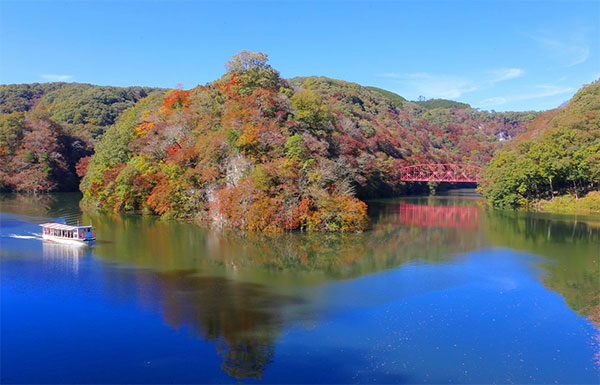
(Translated from Japanese. Banner photo: © Pixta.)
Contributed by Nippon.com







